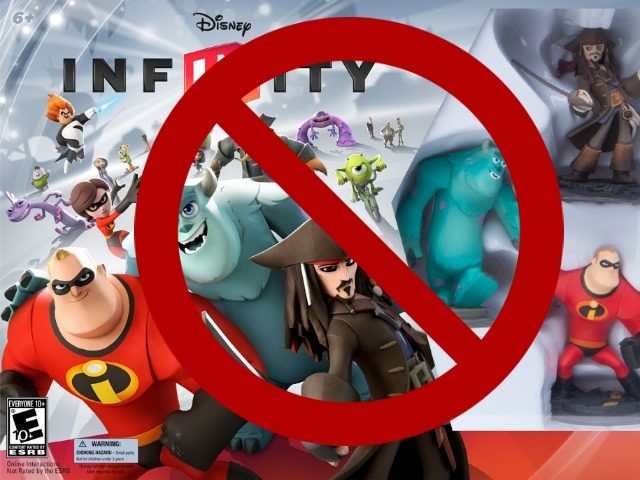Disney is finally done with gaming, and given the trail of shuttered studios it left in its wake, that’s probably just fine.
Disney, slayer of acclaimed developer LucasArts and promising Junction Point Studios, has finally given up the Disney Interactive wing of their corporation for good. Six game development teams have been shut down with hundreds of jobs terminated over the last decade, and Disney will conclude its attempt at producing its own licensed products just when they seemed to be on the verge of something special.
Tech Insider spoke with people involved in the saga, finding that the problems that ran beneath the glossy veneer of Epic Mickey and Disney Infinity were undeniably systemic. Alex Seropian, co-founder of Bungie, ran things internally for Disney’s gaming division from 2009 to 2012 and describes Disney as a company that would “make decisions with a little bit more of an eye towards the spreadsheet than towards the product.”
Disney also killed Wideload Games, a studio that made its debut with the critically lauded cult classic Stubbs the Zombie in “Rebel Without a Pulse.” Despite the team’s pedigree, they were quickly relegated to mobile games marketing the Marvel license. Wideload’s Tom Eastman says that they were quite simply “unable to start and continue working on projects” in a perpetual cycle of development that started with pitches and ended with cancellation.
Even their work on mobile games was tangled in multi-state red tape, making it nigh impossible to accomplish even the mindless grind of thinly veiled interactive marketing. What began as a studio with colorful and creative ideas with a dash of dark humor devolved into an assembly line for false starts and internal sabotage. According to Eastman, Wideload was stuck “managing upwards” from the time they were acquired by Disney until they were functionally dead.
Seropian believes that the core of the problem was a company that just didn’t understand the gaming industry. Disney wasn’t prepared to deal with the investment of resources and risk that tackling an entirely different entertainment medium would entail, seeming to assume that the strength of their licensed properties would be enough to guarantee success. Unfortunately, games proved a bit harder to churn out than Disney Channel tweener comedies, and faltering titles like Split/Second and Epic Mickey shook their confidence.
The well-received Disney Infinity series was Disney’s final genuine attempt to join the games industry, but toys-to-life games weren’t growing quickly enough, and the projected sales figures worried executives. Disney decided to cut its losses and pull out.
Nevertheless, Eastman stills thinks Disney as a company is “super awesome,” and Seropian claims that he really does “like and respect Disney as a company.” They’ve been treated well post-employment by the entertainment giant.
With Disney out of the business of its own games, perhaps other studios with the knowledge and experience will be given a chance to do something with more of the megacorp’s internationally familiar properties. All told, it’s probably best that the House of Mouse is no longer buying and shuttering talent in an industry it doesn’t comprehend.
Follow Nate Church @Get2Church on Twitter for the latest news in gaming and technology, and snarky opinions on both.

COMMENTS
Please let us know if you're having issues with commenting.